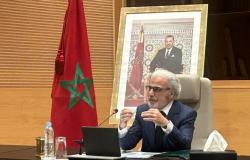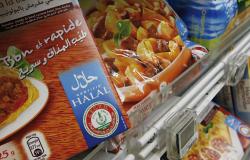
Monaco has been added to the gray list of “enhanced surveillance” by the Financial Action Task Force (FATF), this body which fights against money laundering and the financing of terrorism indicated this Friday, June 28. Explanations of what the FATF is.
Monaco was added this Friday to the so-called gray list “enhanced surveillance” by the Financial Action Task Force (FATF).
During this plenary meeting, the FATF added Monaco and Venezuela to its list of jurisdictions subject to enhanced surveillance,
A ranking announced after a meeting in Singapore. The FATF also says it recognizes the efforts made by the principality in recent months in the fight against financial delinquency.
The FATF is an organization that fights against money laundering and the financing of terrorism.
On its website, it is explained that the FATF “identifies jurisdictions with weak anti-money laundering and counter-terrorist financing measures in two public FATF documents that are published three times a year.
Last February, the organization examined 131 countries and jurisdictions and publicly identified 106 of them.
Of these, 82 have since made the necessary reforms to address their weaknesses in fight against money laundering and the financing of terrorism and were removed from the process.
This list identifies countries that are actively working with the FATF to “address strategic deficiencies in their anti-money laundering, anti-terrorist financing and proliferation financing regime”.
When the FATF places a jurisdiction under enhanced surveillance, it means that the country has committed to promptly resolving identified strategic deficiencies within agreed timeframes and is subject to enhanced surveillance.
On this gray list are: Bulgaria, Jamaica, many African countries but also the Philippines, Syria and Vietnam.
In a report published in January 2023, the Council of Europe asked the Principality of Monaco to better combat money laundering and the financing of terrorism.
The number of suspicious activity reports from casinos and jewellers remains limited, even though these sectors are of particular importance in the principality.
Report from MONEYVAL, the Council of Europe’s anti-money laundering body in 2023.
The Monegasque government then assured that it wanted “implement them quickly in order to comply with the best international standards in the fight against money laundering and the financing of terrorism.”
Monaco left the blacklist of non-cooperative tax havens drawn up by the Organization for Economic Co-operation and Development (OECD) following the G20 in London in 2009.
In a press release, the government of the Principality reacted: “The FATF press release, however, recognises the significant progress made by the Principality on several of the actions that were recommended by MONEYVAL last year.
In particular, the declaration highlights the strengthening of means to combat the financing
of terrorism, the creation of a new financial surveillance and intelligence authority, the
implementation of targeted financial sanctions, and supervision of associations based on a
Risk Assessment.
A timetable has been established, which extends over a year and a half (until January 2026), with two points
intermediate milestones (May 2025, September 2025). The Principality confirms its determination to implement the latest recommendations of the FATF set out in the declaration, in accordance with the planned deadlines.”
Being on this gray list today is news experience damaging to the image and economy of the country.
For its part, in a press release, the National Council takes note of this FATF decision, and of the government’s commitment to implementing the latest recommendations set out in the declaration.
The National Council recalls that being on the grey list means that the Principality is cooperating fully
with the FATF to implement the recommended corrective actions.
In this regard, the National Council notes with satisfaction that the legislative measures put in place since 2018 comply with expected international standards, the FATF having even highlighted the
significant efforts made in recent months.
If this report confirms that we are actively working to improve anti-money laundering systems, it is now up to the government to ensure the implementation, as quickly as possible, of the texts voted by the Assembly. To this end, I confirm that we will continue, in the unity of the Institutions and respect for each person’s prerogatives, the efforts already made to support all the actors concerned so that they can carry out their missions.
Thomas Brezzo, President of the National Council
The addition of Monaco to the FATF grey list comes at a time when the principality is shaken by several financial scandals against the backdrop of the dismissal of the former administrator of the princely assets and close friend of Albert II, Claude Palmero, which turned into a legal war.
A recent investigation by the newspaper Le Monde revealed that part of the fortune of the princely family of Monaco had been placed in tax havens.
With AFP





